Tragically, there are some circles of people who operate with the warped perception that solopreneurs have pledged themselves to a life of working in complete isolation.
Like Dan West’s hot take on his X thread:
Solopreneurship is garbage.
— DAN WEST 🌎 (@danwestworld) September 23, 2023
Dan highlights some interesting points in his thread, comparing the income of the CEO of Uber ($19M) to the income of solopreneur Justin Welsh ($1.3M) to drive home his point that “solopreneurship is garbage.”
But the more important aspect to consider is lifestyle.
To build on Dan’s idea, Elon Musk also makes much more than Justin Welsh.
Many people would much prefer the scale of Justin Welsh with the freedom and stress levels that accompany it compared to the always-on lifestyle of Musk.
Moreover, the thread reiterates the misconception that solopreneurs don’t work with anyone.
The reality is, solopreneurship does not mean you
- Only work alone
- Avoid partnerships
- Refuse to outsource
- Do everything yourself
It just means you’re designing a business that doesn’t require partners or employees to run.
And with the right tech stack and framework, the business won’t even require YOU to run.
The Solopreneur Tech Stack
Before we dive into the key technologies that will empower you as a solopreneur, this will be most helpful to you if you’ve already created your Godfather Offer and Cultural Framework Model.
If you haven’t, read those frameworks before this one.
After hitting 6-figures as a solopreneur myself, I’ve analyzed the tech stack that allowed me to get there and updated it for more current times.
Implement these key components into your solopreneur journey if you want to:
- Enhance your sales process
- Put lead nurturing on autopilot
- Automate customer fulfillment + care
- Streamline & simplify business operations
- Spend less time on menial, repetitive tasks
The stack is designed to allow for scale, autonomy, customer satisfaction, and simplicity.
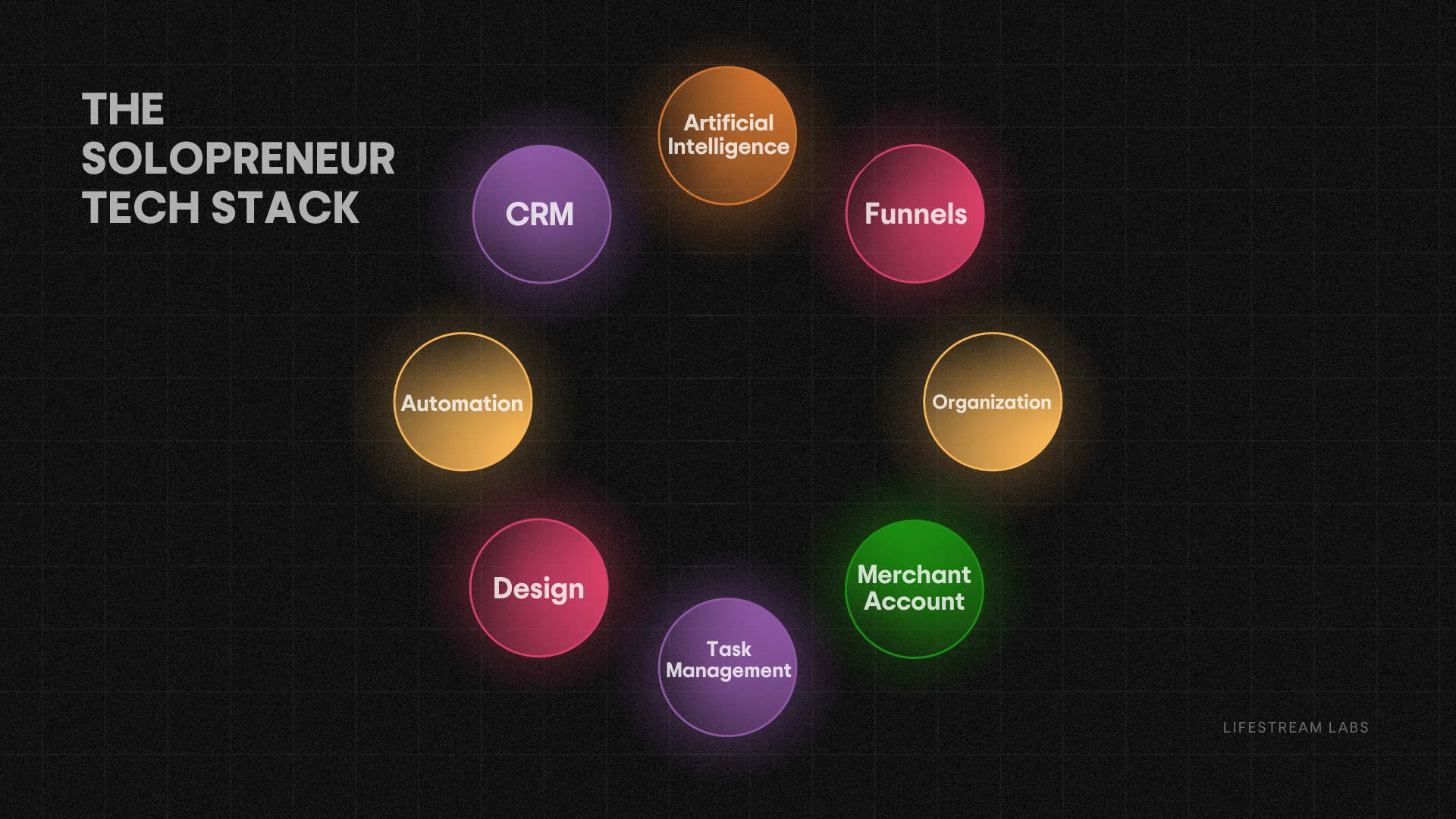
Customer Relationship Manager (CRM)
It amazes me how many entrepreneurs/solopreneurs overlook this business necessity.
A CRM is your database of customers and their information such as their name, email, phone number, purchase history, location, and more.
Many fall into the trap of never collecting this information and instead keep all their customers on social media platforms.
The problem with that is you don’t own your customer data if you just keep it on social media platforms.
By capturing and recording customer data in your own CRM, you actually own that data now.
If your social media accounts get shut down for whatever reason, you’ll still have a way to get in touch with your audience.
I’ve tried dozens of CRMs myself and there are thousands on the market.
As you’ll see when you keep reading, GHL is incredibly robust.
It combines a number of the tools and features you need on one single platform for a very fair $97/mo.
Funnels & Websites
You’ll likely be needing a website, landing pages, and funnels to help operate your solo venture.
Fortunately, if you’re using GoHighLevel, you don’t need another subscription.
GHL has built-in features for
- Forms
- Courses
- Websites
- Landing pages
- Funnel building
- Email sequences
And more.
Task Management
Many solopreneurs choose to improvise when it comes to tracking their daily tasks.
I don’t recommend that approach.
Instead, get yourself a simple task manager that will help both you and any freelancers you work with stay on track.
There’s no shortage of options and finding the right one for your way of thinking and working is really a matter of trial and error.
Some of the top choices among solopreneurs are:
- Monday
- ClickUp
- Airtable
- Asana
- Trello
- Jira
If you’re like me and prefer to plan every waking minute of the day, Sunsama is definitely worth checking out.
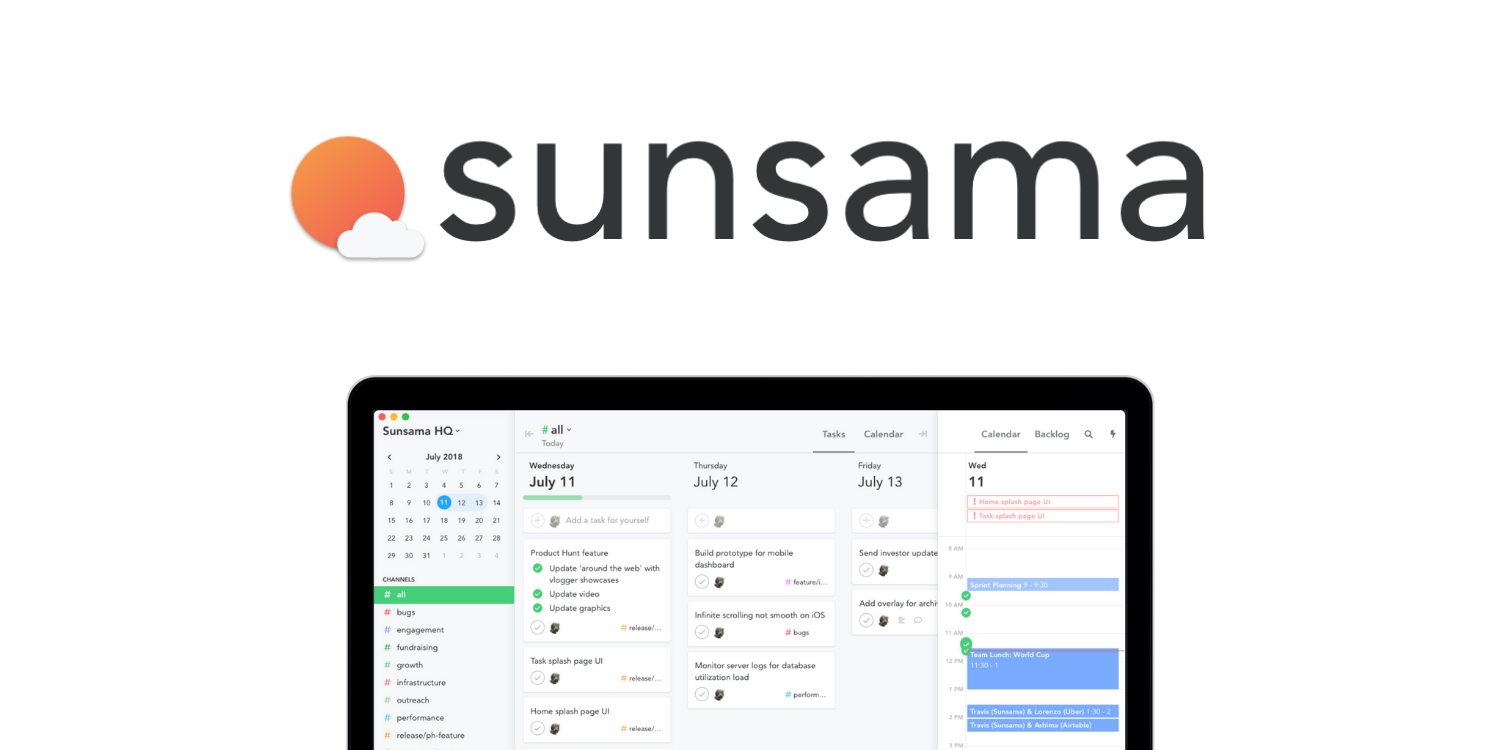

Organization & Planning
There’s absolutely no contest here.
You need to stay organized as an entrepreneur and after experimenting with over a dozen different platforms (including some of the task managers mentioned earlier) Notion is the clear winner.
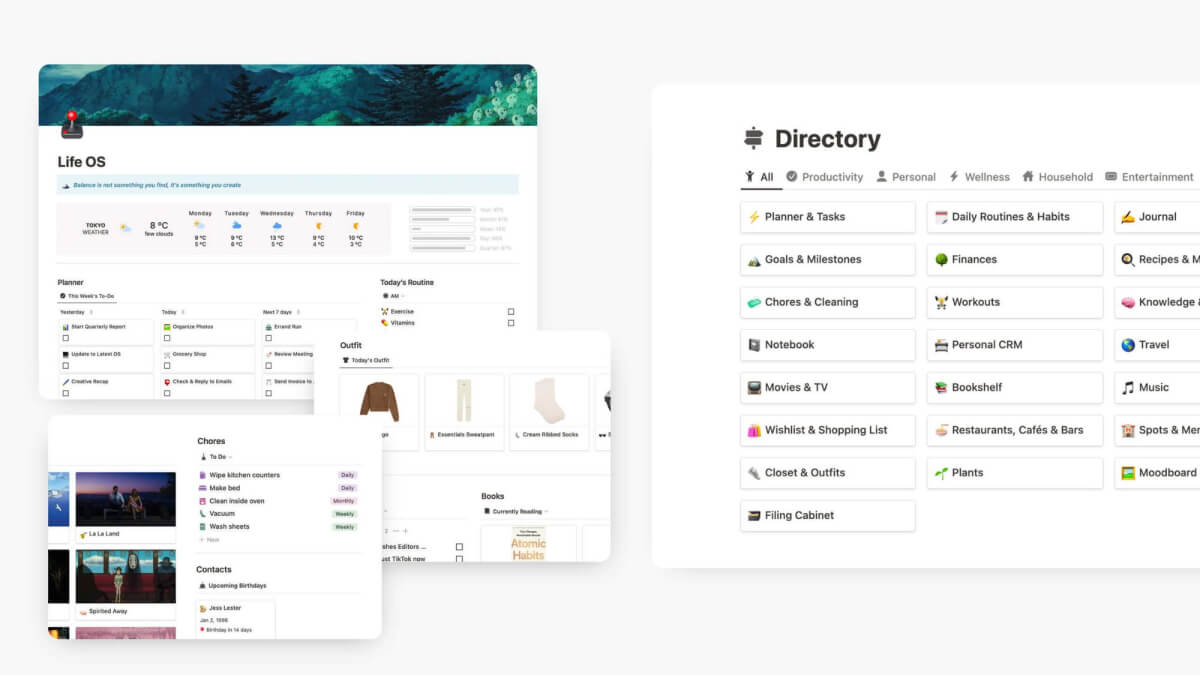
I call Notion my ‘Life Operating System’ because literally everything besides daily tasks go through there.
Business strategy & operations.
Favorite books + movies.
Notes + Ideas
Personal life.
Travel plans.
It all goes through Notion.
Notion is a simple platform.
But I’ll warn you now…if you want to use Notion right and really maximize its power…
There is a bit of a learning curve to get things set up in a way that works for you.
You can use it just as a simple note taking app or you can architect a structured system that is designed to work around your needs and lifestyle.
The good news is there is no shortage of templates and tutorials available for getting everything all set up.
A simple search on Youtube for “Notion tutorials” or “Notion setups” will give you everything you need.
Design
Another no-brainer here.
Although I’m proficient in Photoshop, I do almost all of my design work in Canva.
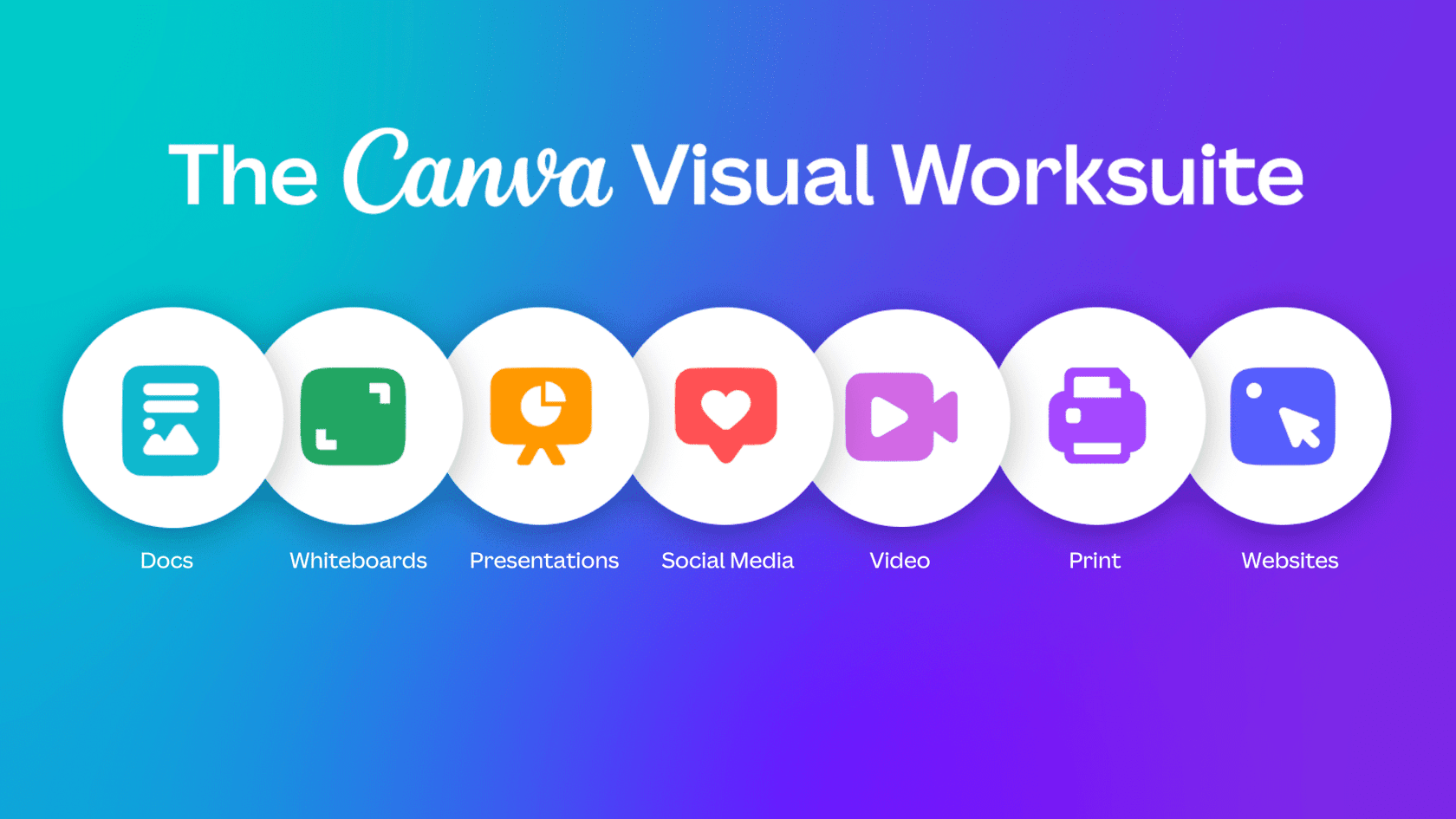
If you’re unskilled at design, head to Upwork or Fiverr to work with freelancers for your design needs.
Automations
This is where we start getting into the potential for a self-sustaining business.
Automations allow you to effectively get work done 24/7.
I have two tools to highlight in this category.
#1 Zapier
Zapier is a very well-known automation tool that allows you to connect thousands of different softwares and tools together in custom workflows.
#2 ManyChat
Manychat allows you to have dynamic, automated conversations with prospects on channels such as Instagram DMs and Facebook messenger.
You can have people DM or comment keywords to get automated responses.
You can send automated follow messages if they don’t respond.
You can capture lead information.
There’s even a workflow using Zapier that you can set up to integrate ChatGPT into your DMs to have conversations with prospects.
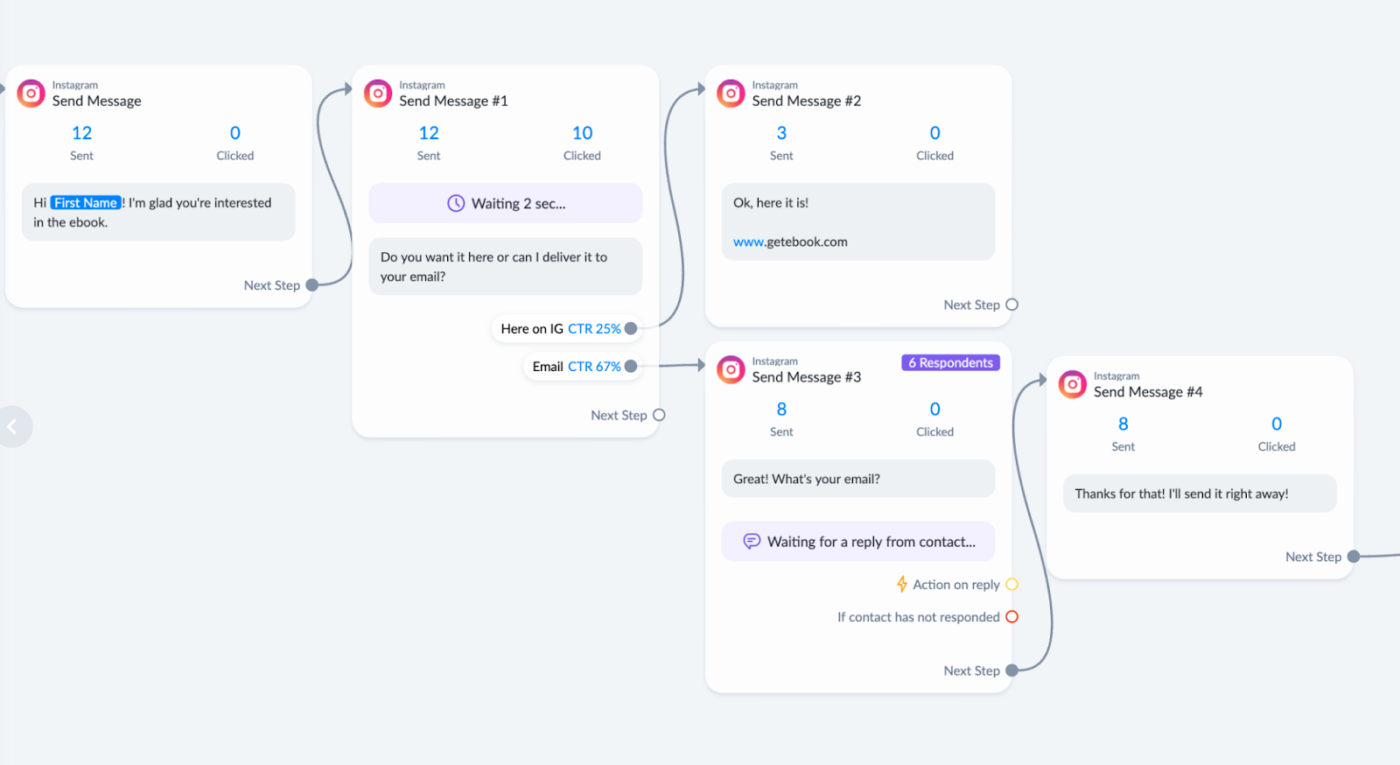
This tool alone has been responsible for saving months worth of time responding to DMs.
Artificial Intelligence
I’m sure you’ve already heard some version of this more times than any person would need to, but…
Of course, you shouldn’t be using AI just for the sake of being able to say that you’re using it.
You should use it when it can practically save you time, energy, or make you more money.
I have extensive experience in the AI space so I know how deceiving and frankly unhelpful many AI tools truly are.
There is, however, a reality few casual users of AI tools admit to themselves:
The quality of the AI output is dependent on the quality of the user input.
If you go to an AI tool with vague instructions or requests, you’re going to get shit outputs.
I broke this down extensively and explained how to always get great responses from AI in the Perfect Prompt Formula article a few weeks ago.
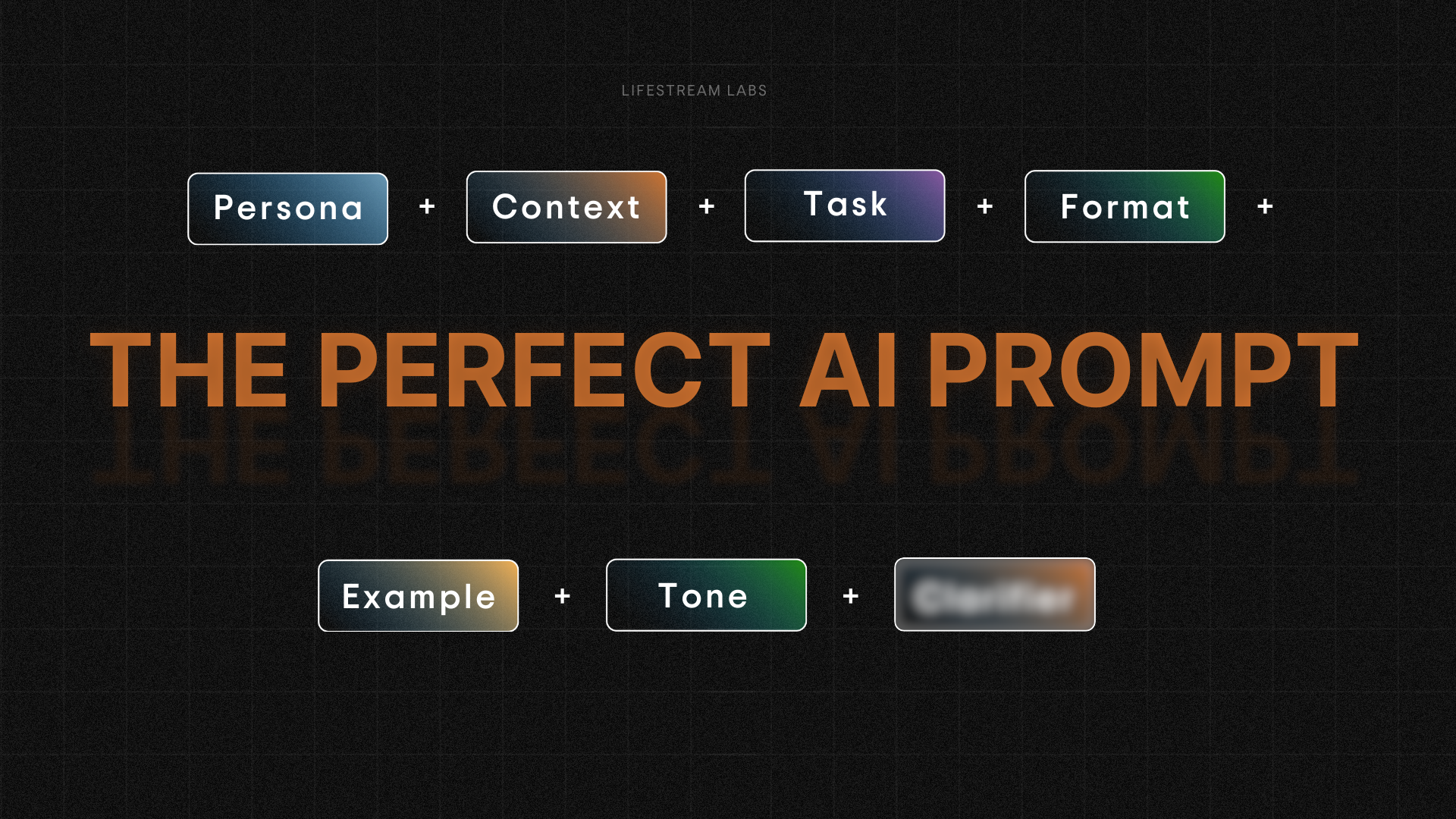
Now, let’s dive into 3 AI tools that are must-haves for your solopreneur journey.
#1 ChatGPT / Claude 2
Since you don’t have a co-founder with you, you’ll need someone to bounce ideas off of, brainstorm with, critique your thinking, and develop the business with.
Traditionally, you’d just have to handle that all on your own or hire a consultant.
If you know how to operate AI tools like ChatGPT and Claude 2, you can do all of that and much more for about $20/month.
Since I already gave you the Perfect Prompt Formula, I won’t go in depth on how to use these AI tools here.
#2 HeyGen
HeyGen allows you to create an AI deepfake of yourself so you can create video content without ever getting in front of the camera.
After you submit a 2-3 minute video of you talking to the camera, you’ll use that to train the AI to replicate your facial expressions, mouth movements, and hand gestures.
From there you can literally have it say whatever you want just by typing it out or adding your own voice recording.
#3 AI warehouse
Not an AI tool itself, but The AI Warehouse is my free-to-use directory of the top AI tools coming to market.
You can sort, filter, and save over a thousand different AI tools to find the right product for your business needs.

Merchant Account
If you’re a solopreneur, you’ll need a way to collect funds from your customers.
If you’re using crypto instead of fiat currency then I’ll assume you already have your process for handling funds.
If you’re using traditional fiat currency, you need to make sure you have what’s called a “merchant account.”
A merchant account is an account or service provider that holds funds from customers before transferring into your business bank account.
Merchant accounts may also function as payment processors.
Stripe is a popular choice for its ease of use and reliability, but it’s often under fire for freezing funds for some users.
While Stripe may be a good place to start, ultimately you’ll likely want to set up a merchant account directly with your bank.
Update 6/28/2024: Chase has since betrayed me and randomly (without notice before or even after) closed my business savings account and then proceeded to send the check with my funds to the WRONG address.
Wretched experience. I have recently by business accounts to American Express, we'll see how it goes over there.
👏 The End
Like all forms of entrepreneurship, solopreneurship can be tough.
I’ve created this tech stack framework of tools with the intention of making the journey a little easier.
If you discovered at least one new tool that you like, do me a favor and share this article with a friend who is on a similar journey.
Thanks for reading!
P.S. If you’re a content creator with an audience and you’re not earning 6-figures from your online presence, I can solve that for you for free.





